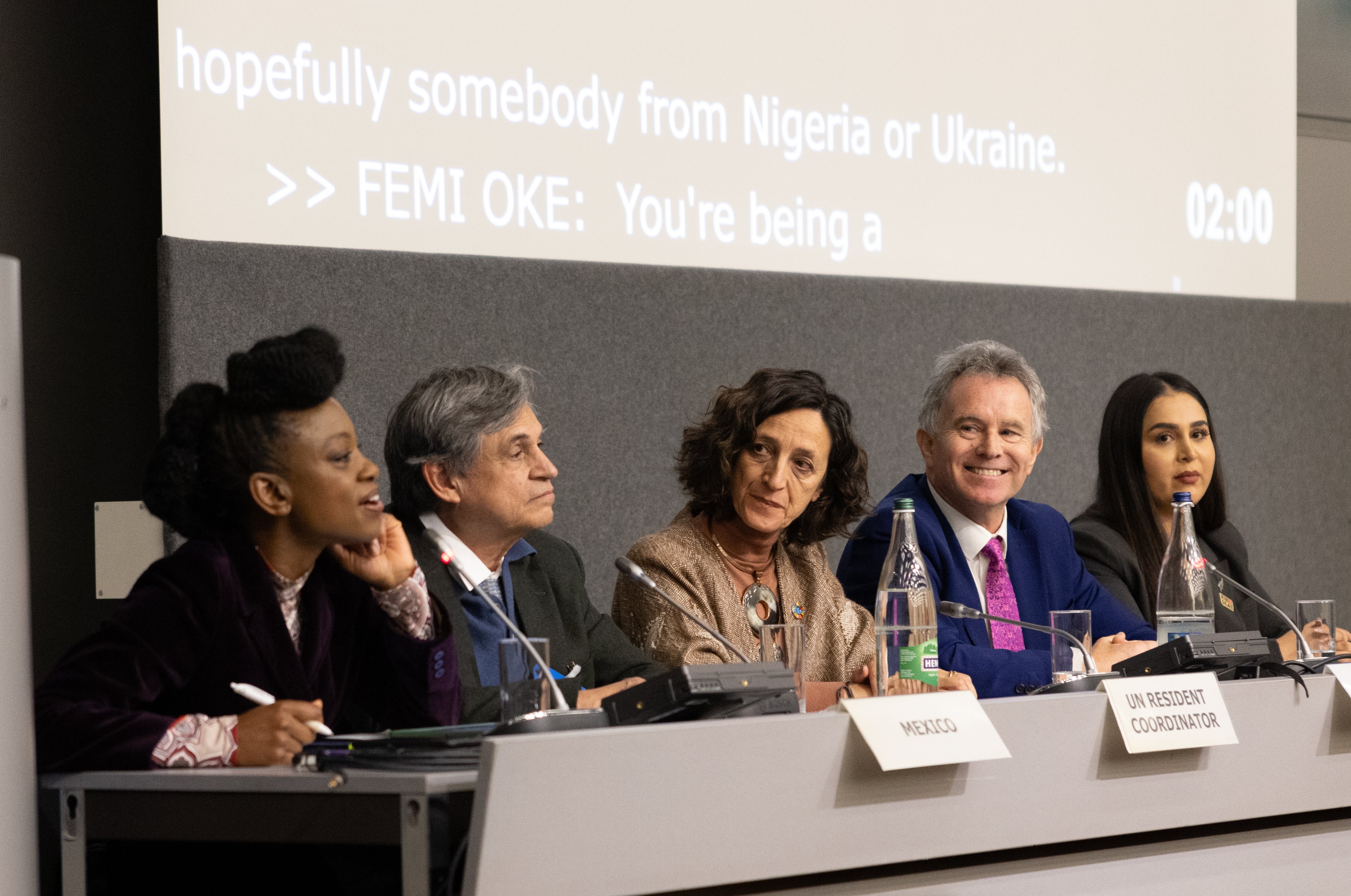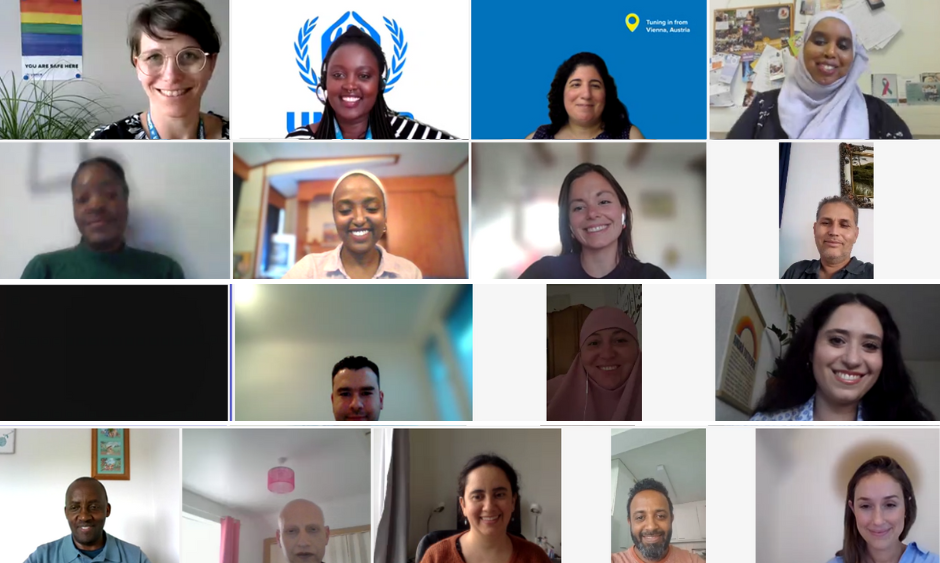UNHCR’s priorities for the next Irish Government
UNHCR’s priorities for the next Irish Government

In recent years, large numbers of refugees from Ukraine and increased numbers of people in need of international protection have come to Ireland. While the response of the Irish government and local communities has, for the most part, been welcoming, a number of challenges remain.
It is in everyone’s interest to plan for an international protection system that ensures the rights and needs of those seeking international protection, a system that encourages integration and inclusion, while also supporting the host communities.
With a General Election on the horizon, here are UNHCR’s Six Priorities for an Efficient, Human Rights Based International Protection System in Ireland:
- Ensure fair and fast asylum procedures and implement the EU Pact on Migration and AsylumLink is external.
- End homelessness and tented accommodation.
- Roll out an adequate reception and accommodation system for international protection applicants.
- Combat racism, misinformation, hate crime and hate speech.
- Support refugee integration from day-one.
- Respond to humanitarian crises and forced displacement abroad.
- Ensure fair and fast asylum procedures and implement the EU Pact on Migration and Asylum.
Establish a dynamic, well-resourced system that can respond to changing patterns while avoiding bottlenecks.
Reduce processing times and clear the backlogs at the International Protection Office (IPO) and International Protection Appeals Tribunal (IPAT)
Effectively implement and legislate for the EU Pact on Migration and AsylumLink is external - the intended overhaul of the protection system should reduce the number of steps in the process, increase efficiency and establish a more effective returns system.
Ensure Pact implementation plans safeguard the rights of international protection applicants and guarantee fair procedures. In particular:
- Ensure the detention of international protection applicants is only used a last resort, while children are never detained.
- Establish an independent, effective and sufficiently resourced fundamental rights monitoring mechanism.
- Establish a proactive and systematic approach to identifying vulnerabilities and persons with specific needs at an early stage of the process and respond to their needs.
- Ensure the Legal Aid Board is adequately resourced and facilitated to provide timely and effective legal assistance and representation at all stages of the process.
- End homelessness and tented accommodation.
Since December 2023 the Irish government has not been able to provide accommodation to every international protection applicant who requested it; currently 2,831 people remain without an offer of accommodation (as of 5 November). All new international protection applicants should be offered reception accommodation from the outset which, at a minimum, meets their basic needs.
Tented accommodation sites have been in use in Ireland since July 2022. There are now 5 tented sites for international protection applicants where 923 people are currently staying (as of 6 November 2024). Tented accommodation should only ever be used as a temporary, emergency measure in exceptional circumstances and for the shortest time possible. Their use should be phased out as quickly as possible.
- Roll out an adequate accommodation and reception system
Implement the White Paper on Ending Direct ProvisionLink is external and Comprehensive Accommodation StrategyLink is external in full and ensure contingency planning is in place to respond to future fluctuations in the number of international protection applications received.
Allocate sufficient capital funding to implement the accommodation plan, in particular to build or purchase 14,000 State-owned beds by 2028 while adhering to national standards.
Encourage integration and community support by developing a suitable distribution model.
Implement the International Protection Child Payment to reduce child poverty.
- Combat racism, misinformation, hate crime and hate speech.
Keep Hate Speech on the legislative agenda and replace the 1989 Prohibition of Incitement to Hatred Act in order to ensure that the rights of asylum seekers, refugees and stateless persons are protected.
Pass laws to prevent targeted protests in close proximity to residential buildings, specifically including all accommodation facilities for asylum seekers and refugees.
Implement and support the National Action Plan Against RacismLink is external.
Roll out a public information campaign on migration and asylum to counter misinformation.
- Support refugee inclusion and integration
Provide all necessary resources to support the self-reliance of refugees, so that people with valuable skills and experience can work and live independently.
Design, implement and resource a strong national integration policy, building on positive initiatives like the recent establishment of Local Authority Integration TeamsLink is external.
Consult with refugees who have settled here in order to monitor and assess progress and learn from their experiences.
Implement an effective international protection data strategy to ensure that comprehensive and relevant data is collected on people granted international protection status and resettled refugees in Ireland, in a way that respects data protection laws and privacy rights. This is needed to ensure that policy and practice in this area is informed by the best data possible.
- Support the response to forced displacement and humanitarian crises abroad
Tackle the root causes of displacement by continuing to support UNHCR and other UN Agencies, international NGOs and humanitarian agencies supporting refugees in their regions of origin or on the move along key routesLink is external.
Continue to make annual increases in official development assistance spending in order to fulfil the commitment to spend 0.7% of GNI on official development assistance by 2030;
Implement current commitments to resettle refugees to Ireland and continue to support the Irish Refugee Protection Programme.
Expand and resource programmes providing education and labour pathways for refugees to come to Ireland to study or take up work via regular and safe channels.





